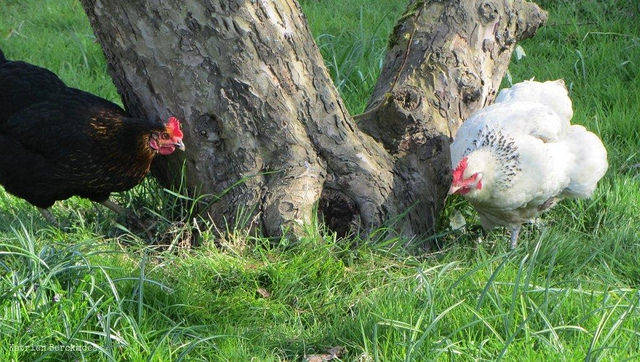As with most other pets and livestock, chickens, too can get intestinal worms. Worms are parasites and as such will literally drain their victims of their energy and good health with common signs of an infected chicken being things like :
- Reduced egg numbers
- Runny droppings
- Lethargic
- Weight Loss
- Pale comb and unkempt feathers
- Generally run down
These symptoms are quite generic and feature in many illnesses but if a hen shows these kinds of signs and hasn’t been wormed recently there is a good chance that it could be down to worms but to be sure (and to know exactly what kind of worm to treat for such as roundworms, tapeworms and hairworms etc.) you can get a test done on some droppings by a vet for confirmation. Sometimes you can even see the worms in your chickens droppings yourself (they may even get into their eggs in some extreme cases!)
Worms are easily and quickly spread in chicken droppings, flies, earthworms and snails, mice and rats etc. so if one of your flock has them then it is safe to assume that they all will.

Ways to prevent/minimise worms can include good sanitation in the coop and run, ensuring food is not left out which can attract rats and following a regular worming routine.
To reduce flies in the run I pick up their droppings twice a day and sprinkle a little food grade Diatomaceous Earth over where the droppings were (there is often a damp spot or little remnants left behind) and that seems to keep the flies away. It must be the food grade kind and because of that it is fine for the chickens to eat some D.E. as they are pecking around – in fact some people actively feed a little food grade D.E. to their chickens for the perceived health benefits.
It is believed that giving chickens apple cider vinegar can also help prevent/reduce worms – my personal worming routine is to give my chickens ACV once a week for their general good health (I hope) and also worm them once every three months with a general wormer. Some people prefer to wait until they see worms, diagnose the type of worms they are treating for and then worm their flock. It really depends on what you feel happiest with (or what your vet advises).